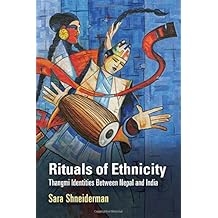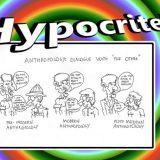Stars to the State and Beyond: Globalization, Identity, and Asian Popular Music (Article Review)
If you would like to read the source article first, follow the link.
 I used to hate popular music when I first understood the concept. During those times, it seemed like a group I could never belong or relate to. During my elementary and middle school days, I changed schools quite frequently. I was constantly the outcast; the new guy who doesn’t know any of his classmates because he didn’t grow up with them. I had limited access to music, and so all I knew was the music on the radio. I had trouble enjoying pop music for many reasons, and still do to this day. This conceit towards pop music fueled my eventual music elitism once I discovered metal for the first time. Over the years, I became obsessed with metal music. So much, that it became indistinguishable from my identity.
I used to hate popular music when I first understood the concept. During those times, it seemed like a group I could never belong or relate to. During my elementary and middle school days, I changed schools quite frequently. I was constantly the outcast; the new guy who doesn’t know any of his classmates because he didn’t grow up with them. I had limited access to music, and so all I knew was the music on the radio. I had trouble enjoying pop music for many reasons, and still do to this day. This conceit towards pop music fueled my eventual music elitism once I discovered metal for the first time. Over the years, I became obsessed with metal music. So much, that it became indistinguishable from my identity.
I deplored pop music until something changed. After I finished high school, questions about life, the future, and my identity crashed over me. Indeed, I almost sunk beneath the weight of it all. The result was a re-emergence of the self. My self. Its effects still reverberate today, and knowing this might help you understand the person I am now. I’m still a metal head, but I am no longer elitist. I still avoid listening to pop music in general, but I no longer mistake it for a reflection of my inability to “fit-in” as a teenager. You could say I learned how to go about listening to different kinds of music.
For a long time I refused to let myself like any music labeled with “pop.” At least now we’re on speaking terms. I’ve come develop my own tastes for pop music, and Music in general. Although the study of popular music is a relatively recent topic in the academic world, Matsue argues that it has great potential for interdisciplinary studies (17). Upon reading her article, the next step in my relationship with pop music is quite clear: academia.
 The landmark of an Anthropologist is generally agreed upon to be their exceptional skills at drawing connections between different fields. The goal of Matsue’s essay is to get the reader to recognize “the power of pop music to shape conceptions of self and inform the ways we in which we interact with others at the individual, communal, and even national and transnational levels” through the dissection of popular music studies on multiple levels of inquiry (6). Popular music, as defined by Matsue, is “the synthesis of both local and global cross-fertilization” (7). This definition brings me back to last weeks post about “cultural hybridization,” which is the idea that an individual’s culture is not a single entity, but rather a conglomerate of influences.
The landmark of an Anthropologist is generally agreed upon to be their exceptional skills at drawing connections between different fields. The goal of Matsue’s essay is to get the reader to recognize “the power of pop music to shape conceptions of self and inform the ways we in which we interact with others at the individual, communal, and even national and transnational levels” through the dissection of popular music studies on multiple levels of inquiry (6). Popular music, as defined by Matsue, is “the synthesis of both local and global cross-fertilization” (7). This definition brings me back to last weeks post about “cultural hybridization,” which is the idea that an individual’s culture is not a single entity, but rather a conglomerate of influences.
What struck me the most in Matsue’s article is her cross-analysis between several lenses and contexts of popular music. Rather than seeing each study as not pertaining to the other, she draws the connections between them propelling her understanding of identity formation. The first idea she arrives at is that music is in conversation with itself, and that it produces a more realistic national identity. In the case of Vietnam, censorship of song lyrics moderates cultural expression to the outside world, allowing the government to decide what is uniquely “Vietnamese” and what is not. In terms of national identity, Matsue comes to the conclusion that balance must exist between the need to represent important social themes and the needs of government approval (10). Matsue seems to agree with Olsen (2008) that lyrical censorship limits the full potential of popular music’s ability to express identity on the national scale.
 Another point Matsue brings up is that globalizing processes in Asia should not be viewed in relation to the West only (the term Olsen terms “Americanization”) but rather we should widen our lens to include other cultures in Asia and individual traditions. This brings up even larger questions of contextualizing those cultures which influence any given culture. For anthropologists, this means we must increasingly work together as well as outside our discipline in order to achieve such a holistic goal of understanding. Matsue finishes her argument with a call for more research on the “negotiation of identity between performers and political powers,” which brings me to a book I read last Fall called Rituals of Ethnicity, by Sara Schneiderman. In this book, Schneiderman gets down to the roots of cultural identity construction through her analysis of interactions of cultural “practice” and “performance” between minority groups and political powers in South Asia. Perhaps I might start there for next week’s post.
Another point Matsue brings up is that globalizing processes in Asia should not be viewed in relation to the West only (the term Olsen terms “Americanization”) but rather we should widen our lens to include other cultures in Asia and individual traditions. This brings up even larger questions of contextualizing those cultures which influence any given culture. For anthropologists, this means we must increasingly work together as well as outside our discipline in order to achieve such a holistic goal of understanding. Matsue finishes her argument with a call for more research on the “negotiation of identity between performers and political powers,” which brings me to a book I read last Fall called Rituals of Ethnicity, by Sara Schneiderman. In this book, Schneiderman gets down to the roots of cultural identity construction through her analysis of interactions of cultural “practice” and “performance” between minority groups and political powers in South Asia. Perhaps I might start there for next week’s post.
Thanks for reading!
Source:














